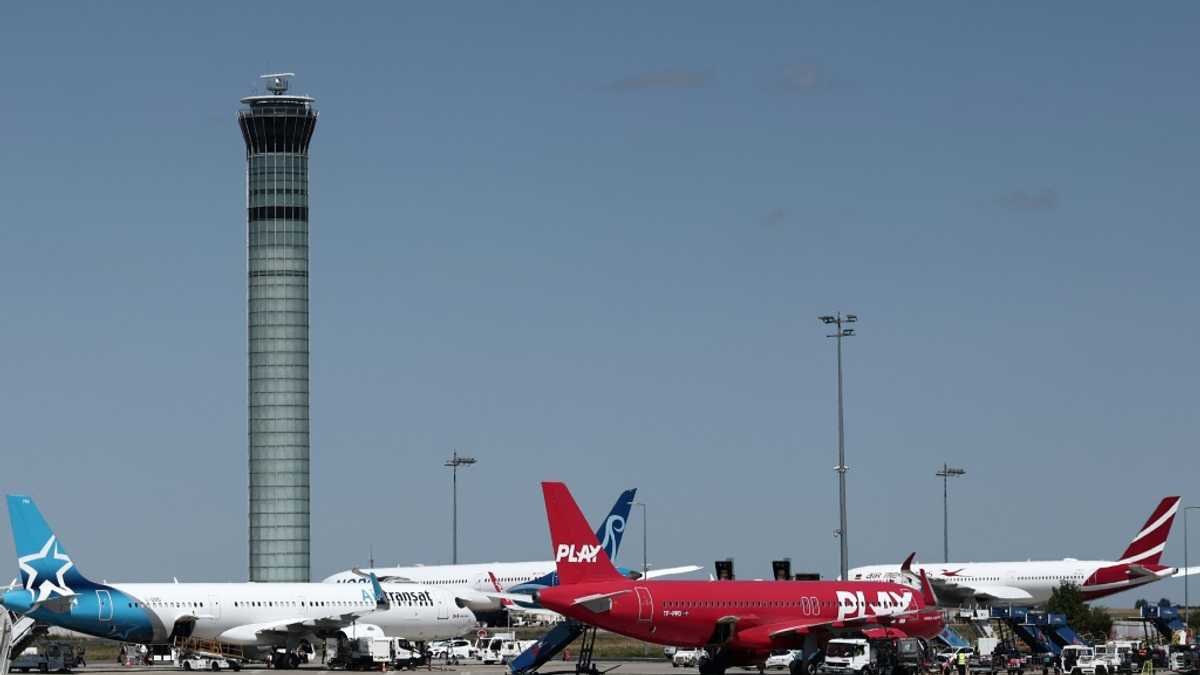Impact of French Air Traffic Controllers’ Strike on Travelers
French air traffic controllers initiated the second day of a two-day strike on Friday, causing widespread flight cancellations that affected not only travelers to and from France but also those flying over the country. This disruption coincided with the start of summer holidays, creating significant challenges for millions of people planning their trips.
Paris airports experienced more severe disruptions compared to the first day of the strike on Thursday. The strike was organized by two minority unions, which are demanding improved working conditions and better staffing levels. The timing of the strike has been particularly problematic, as it falls on the final day of school in France before the summer break, leading many families to begin their vacations early.
According to France’s DGAC aviation authority, 933 flights were canceled on Thursday, representing about 10% of all scheduled flights. At Paris’s main airports, the cancellation rate rose to 25%. On Friday morning, around 1,000 flights were canceled after DGAC requested airlines to reduce their schedules by 40% to manage the impact of the strike.
The government has strongly criticized the strike, with Prime Minister Francois Bayrou stating that choosing such a critical time to disrupt air traffic control is “taking the French hostage.” Transport Minister Philippe Tabarot echoed this sentiment, calling the situation “unacceptable” and noting that the strike affects more than 500,000 people.
The strike was launched by UNSA-ICNA, the second-largest labor group in the sector, in protest against chronic understaffing, the introduction of a clock-in system, outdated equipment, and what they describe as “toxic management practices.” The third-largest union, USAC-CGT, joined the action, but the main union, SNCTA, did not participate.
The effects of the strike extend beyond France, with hundreds of flights overflying the country being canceled. The European Airlines for Europe (A4E) association reported that 1,500 flights would be canceled on Thursday and Friday, affecting 300,000 passengers. A4E chief Ourania Georgoutsakou criticized the strike, highlighting that French air traffic control already has some of Europe’s worst delay figures and that the actions of a minority of workers are disrupting holiday plans across the continent.
The strikes also caused nearly 500,000 minutes in delays across Europe on Thursday, impacting almost 33,000 commercial flights. Ryanair, Europe’s largest airline by passenger numbers, reported canceling more than 400 flights. CEO Michael O’Leary urged the EU Commission to legally protect overflights during strikes, suggesting that 350 of the canceled flights would have proceeded if such protections were in place.
At Paris airports, passengers faced long lines and uncertain futures as they tried to navigate the cancellations. Julien Barthelemy, a traveler from New York, described his frustration at Charles de Gaulle Airport, where he was stuck waiting for a spot on a flight to Marseille. Lara, a 30-year-old traveler, shared her disappointment after having to reschedule her trip to Berlin multiple times, ultimately resorting to buying more expensive train tickets.
The ongoing strike has highlighted the vulnerability of the aviation sector to labor disputes, especially during peak travel periods. As the situation unfolds, travelers continue to face uncertainty, and the broader implications of the strike on European air travel remain a pressing concern.







